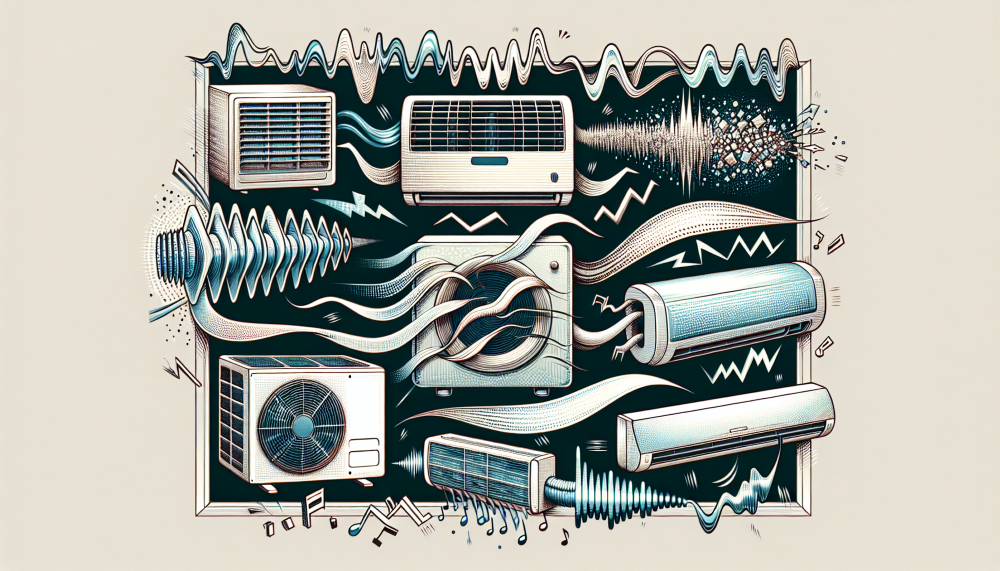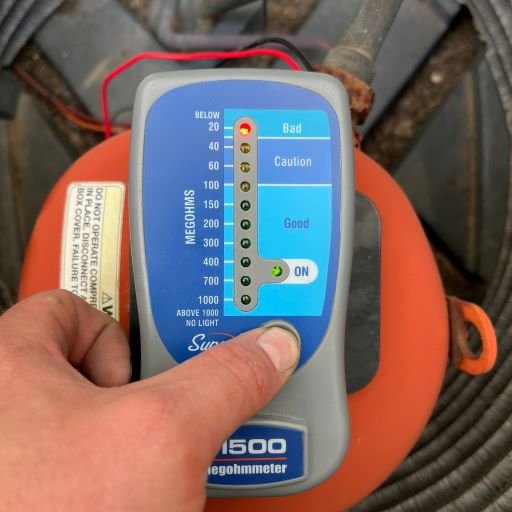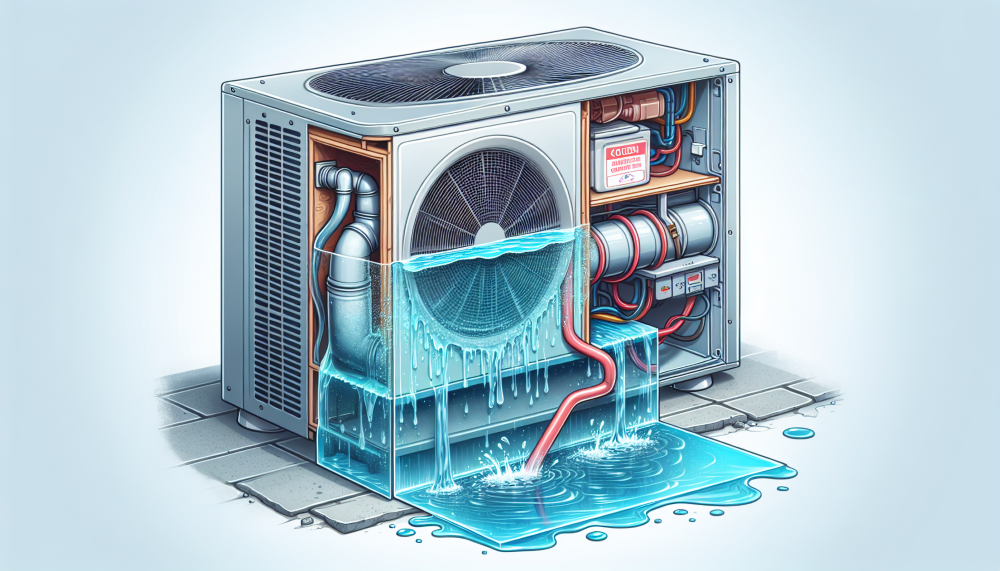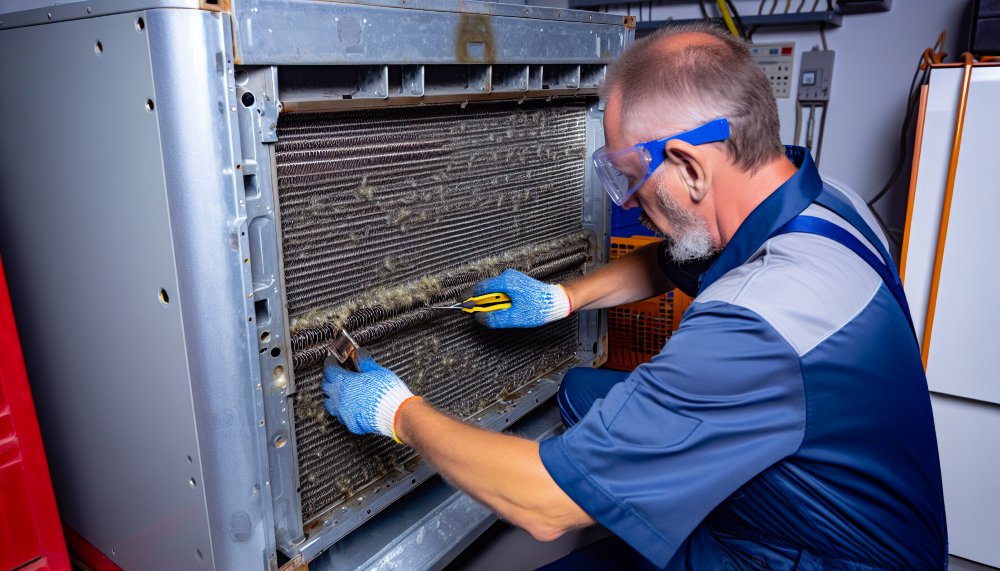Why Does My AC Smell Musty?
Quick Fixes for Fresher Air at Home
If you’re asking ‘Why does my AC smell musty,’ it’s likely due to unwanted moisture and the growth of mold or mildew in your system. This article will help you identify the reasons behind the smell and offer actionable steps to eliminate it, ensuring the air in your home remains clean and odor-free.
Key Takeaways
Persistent musty smells from air conditioning units indicate an underlying issue commonly due to mold, mildew growth, or moisture-related problems that necessitate prompt maintenance or repair.
Maintaining clean and dry AC components such as filters, evaporator coils, and drainage systems is essential for preventing unpleasant odors and ensuring optimal performance of the HVAC system.
Technological advancements like UV lights for eradicating microorganisms and air scrubbers for reducing pathogens can significantly improve indoor air quality and prevent musty smells in air conditioning systems.
Unveiling the Mystery Behind Your Musty AC Smell
The heart of the mystery behind the musty smell lies primarily in the darkened corners of your air conditioning unit, where mold spores and mildew find a conducive environment for growth. Common issues related to moisture and lack of maintenance can serve as a breeding ground for these organisms, leading to an unpleasant odor that permeates your home. While a musty odor is considered normal during the first few uses each season, persistent smells are a cause for concern and should be addressed promptly.
A properly maintained HVAC system should primarily smell like the rest of the house—free from any pronounced odors. Persistent musty smells may indicate underlying issues that, if left unaddressed, can negatively impact your indoor air quality and possibly affect your health. So, the next time your air conditioner smells musty, consider it a call to action rather than a mere inconvenience.
Identifying Mold and Mildew in Your Air Conditioning Unit
Mold and mildew thrive in dark, moist environments such as your AC unit's evaporator coils and drain pans. These unwanted guests can leave behind a musty smell, often the first sign of their presence. Regular visual inspections can reveal signs of mold, which may appear as stains with a fuzzy or velvety texture on surfaces such as the walls and air filter.
Without regular maintenance and proper cleaning, your AC unit may become a breeding ground for mold. The buildup of mold and bacteria on the evaporator coil is a common cause of the musty odors associated with air conditioners. Therefore, keeping an eye out for any mold or mildew growth is a crucial step toward maintaining a fresh, odor-free home.
The Role of Your Air Filter in AC Odors
Air filters play a significant role in maintaining the freshness and cleanliness of the air circulated by your AC unit. Regularly replacing the air filter, as often as every 1-3 months, is crucial to preventing bacteria growth that contributes to musty smells. A clean air filter ensures efficient operation of the HVAC system, reducing the accumulation of dust and debris that can lead to unpleasant odors.
Moreover, clean air filters support proper airflow and prevent moisture buildup in the ducts, essential for regulating indoor humidity and reducing the potential for mold growth and musty odors. In essence, the humble air filter plays a pivotal role in keeping your air conditioning system functioning effectively while ensuring a fresh and pleasant indoor environment.
Drainage Woes: When the Condensate Line or Drain Pan Gets Clogged
Your AC system works hard to keep your home cool, but in the process, it produces condensation. This water is usually directed out of your home through a condensate line. However, when this line gets blocked or the drain pan overflows, it can cause a musty smell. This is because the stagnant water in a full drain or drip pan can become a breeding ground for mildew or mold, leading to musty odors.
Proper installation of the drain line with correct sloping and keeping the air handler’s drain pan clean and unobstructed are key to preventing clogs and musty odors. If improper drainage leads to mold buildup, a professional technician can remove the mold without causing damage to the unit, effectively addressing the musty smell issue.
Tackling Excess Moisture: A Common Culprit for Musty AC Air
Excess moisture in your AC system is a common culprit for the musty odors that plague many homeowners. This is because excess moisture can lead to the growth of mold and mildew, which emit a musty odor when they decompose organic material. Therefore, controlling moisture levels in your AC is crucial to preventing the growth of these microorganisms and maintaining a pleasant indoor environment.
There are several ways to tackle excess moisture in your AC system. Installing a whole-house dehumidifier, for instance, can significantly reduce indoor air moisture, making your home less conducive to mold and mildew growth. Additionally, ensuring proper ventilation can help control indoor humidity levels, reducing the potential for mold growth and musty odors.
Why Proper Airflow Matters for Your Cooling System
Just as a blocked water pipe can cause a flood, obstructed airflow in your AC system can lead to a host of problems, including musty odors. When air vents are blocked with furniture or other items, it interferes with the AC unit’s ability to circulate air properly, leading to increased indoor humidity conditions and fostering an environment where bio-growth like mold can thrive.
Ensuring consistent and adequate airflow throughout your home’s cooling system is crucial in preventing musty smells. Here are some tips to help maintain a fresh, odor-free home:
Set your fan settings to AUTO mode on the AC unit to contribute to continuous air movement and prevent moisture accumulation.
Keep your air vents clear to allow for proper airflow.
Regularly clean and replace air filters to ensure optimal air quality.
Consider using a dehumidifier in areas prone to moisture buildup.
Open windows and doors to promote cross-ventilation and fresh air circulation.
By following these tips, you can help prevent musty odors and maintain a fresh-smelling home.
Quick DIY Solutions to Combat Musty Smells in Your AC Vents
While professional maintenance is crucial, there are also several quick DIY solutions to combat musty smells in your AC vents. For instance, a simple cleaning solution of vinegar and water can be used to spray vent covers and ducts to help neutralize musty odors. Alternatively, placing bowls of activated charcoal or baking soda near the vents can serve as an odor absorbent, reducing mustiness over time.
Another effective method is adding essential oils to air filters. As air circulates through the AC system, the pleasant aroma of the essential oils counteracts musty smells, providing a refreshing scent throughout your home. Regular treatments of the AC system’s drain pan with algaecides during cooling seasons can also prevent the biological growth that causes musty smells.
How to Clean Your Evaporator Coil and Air Ducts
One of the most crucial aspects of maintaining a fresh, odor-free home is keeping your AC’s evaporator coils and air ducts clean. Dirty coils can impair your system’s ability to remove heat and humidity efficiently, leading to moisture buildup, and subsequent musty odors.
Cleaning your evaporator coil and air ducts is a straightforward process. Here are the steps to follow:
Turn off the air conditioner.
Remove debris from the evaporator coil using a soft brush or compressed air.
Apply a no-rinse coil cleaner to the evaporator coil.
Use a fin comb to straighten any bent coil fins.
By following these steps, you can effectively clean your evaporator coil and air ducts.
Cleaning air ducts involves removing vent covers and vacuuming inside the ducts. Sealing leaks in the ductwork can reduce humidity and prevent bio-growth that causes musty smells.
Refreshing Your Air Handler and Supply Vents
The air handler and supply vents in your AC system also play a crucial role in maintaining a fresh and pleasant indoor environment. These areas can accumulate dust and debris, which can foster the growth of mold and mildew.
Keeping the air handler and supply vents clean can help prevent this issue. Here’s how to clean supply vents:
Carefully remove the supply vents.
Wash the vents with soap and water.
Alternatively, use a vacuum with a brush attachment to remove dust and debris from the slats of supply vents.
Regular cleaning of these areas can go a long way in keeping your home fresh and free from musty smells.
When to Call a Professional HVAC Technician: Beyond the Basics
While regular maintenance and DIY fixes can address minor issues, there are times when the expertise of a professional HVAC technician is required. Persistent musty odors from your air conditioner, for instance, might indicate a problem within the system that requires professional troubleshooting.
Additionally, if you or your family members start experiencing respiratory issues such as coughing, sneezing, or a runny nose, it could be a sign of mold spore inhalation from your AC system. This necessitates an expert inspection and remediation. Knowing when to call a professional can save you time and money while ensuring your home remains fresh and comfortable.
The Importance of Regular Maintenance for Your Heating and Cooling System
Regular maintenance of your heating and cooling system is crucial for its longevity and efficiency. Annual maintenance visits can extend the lifespan of HVAC equipment, helping to avoid premature replacements and maintain system efficiency. A well-maintained system not only operates more efficiently but also prevents musty odors by keeping your AC system clean and free of mold and mildew growth.
Moreover, regular replacement and maintenance of air filters prevent airflow restriction, contributing to system longevity and reducing energy costs. Air scrubbers in the system trap dirt, dust, and debris before it enters the HVAC system, preventing damage to coils and blowers, and maintaining peak system efficiency.
This underscores the importance of regular HVAC maintenance in providing a fresh, comfortable, and healthy living environment.
Preventing Musty Smells: Proactive Measures for a Fresher Home
Prevention, as they say, is better than cure. The same applies to your AC system. Proactive measures such as scheduled professional HVAC maintenance and routine replacement of air filters can prevent the development of musty odors and ensure your system remains in good working condition.
Another effective preventive measure is maintaining whole-house humidifiers properly. A well-maintained humidifier can prevent bio-growth and the circulation of harmful bacteria that result in musty smells. By being proactive in caring for your AC system, you can enjoy a fresher home and prevent the stress and cost associated with major repairs or replacements.
Seasonal Considerations for Your Cooling System
As the seasons change, so do the demands on your cooling system. Therefore, it is crucial to consider seasonal factors when maintaining your AC system. Routine maintenance before hotter seasons can ensure the system works efficiently and prevents musty odors.
A quick inspection of the air conditioning system before peak cooling season can help in preventing the development of musty odors. Prioritizing seasonal maintenance grants homeowners the assurance that their system is prepared for the demands of different weather conditions, providing peace of mind, and a comfortable living environment.
Innovations in Air Quality: Upgrading Your Air Conditioning System
In the modern world, technology has made significant strides in improving air quality and enhancing the efficiency of HVAC systems. One such technology is the use of UV lights. UV lights, particularly at 253.7 nanometers, are effective at eradicating a wide range of microorganisms and help control bio-growth in air conditioning systems, preventing musty smells.
Another significant innovation is the use of air scrubbers. Air scrubbers using ActivePure® technology have demonstrated efficacy in destroying up to 99% of surface contaminants and reducing airborne pathogens significantly, thereby contributing to a healthier indoor environment.
By upgrading your air conditioning system with these latest technologies, you can improve indoor air quality, reduce musty odors, and enhance the efficiency of your air conditioning units.
Summary
In conclusion, musty smells from your AC system are more than just a nuisance; they could indicate underlying issues like mold and mildew growth or problems with your system’s drainage. Regular maintenance, prompt replacement of air filters, and controlling indoor humidity levels are crucial to preventing these odors. Embracing innovations like UV lights and air scrubbers can also significantly improve your indoor air quality. Remember, a fresh, odor-free home is not just more pleasant to live in, it’s also a healthier environment for you and your loved ones.
Frequently Asked Questions
How do I get rid of mold in my air conditioner?
To get rid of mold in your air conditioner, combine hot water and household bleach in a bucket, then use a sponge soaked in the solution to wipe down the inside surfaces of the unit. This will effectively remove the visible mold spores and prevent regrowth.
Why does my house smell when the AC is on?
Your house may smell when the AC is on because of mold or fungus thriving in warm, humid conditions, and the moisture being pulled into your AC isn't drained properly, leading to a stinky home.
How do I stop my air conditioner from smelling musty?
To stop your air conditioner from smelling musty, clean its components with a solution of warm water and mild detergent. For persistent mold, consider using a mixture of one-part bleach to four- water and a UV light system in your HVAC unit to prevent further growth.
What are some home remedies for musty smells in my AC vents?
To eliminate musty smells in your AC vents, you can use a cleaning solution of vinegar and water to spray vent covers and ducts. Additionally, placing bowls of activated charcoal or baking soda near the vents can help absorb and reduce the odor over time.
When should I call a professional HVAC technician?
You should call a professional HVAC technician if you notice persistent musty odors from your air conditioner or experience respiratory issues like coughing and sneezing, as this could indicate mold spore inhalation from the AC system. It's important to have an expert inspect and remediate the issue promptly.








